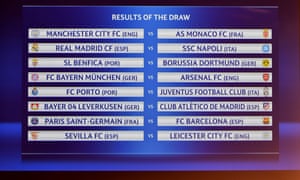Usually at this time of the season the battle to remain competing in the top division intensifies. However this season in Italy's Serie A it could be argued that the battle never started in the first place. After twenty-nine rounds the bottom three are well adrift of everyone else. Sixteenth placed Genoa are fourteen points clear of the drop zone and are practically safe.
In the bottom three are Pescara, Crotone and Palermo. All three have occupied the relegation spots since week twelve. Crotone are playing in their debut season in the top tier but it has proven to be a very difficult step up. Pescara, also newly promoted this season are currently bottom with a paltry twelve points from twenty-nine outings. Pescara sacked the man who guided them to promotion, Massimo Oddo, in February. Despite Zdenĕk Zeman coming in, he hasn't been able to turn the sinking ship around. Crotone lost promotion winning manager Ivan Jurić last summer but haven't sacked his replacement, (not yet anyway), Davide Nicola. Palermo meanwhile are onto their third manager of the season.
This season, unless a massive swing in results is shown, will see the lowest points total for the teams going down with the flip side of that being the lowest points tally for many a year to stay up. For example seventeenth placed Empoli have currently accumulated twenty-two points, in any other season they would be engaged in an intense battle to stay up, yet they are seven points away from trouble. Last season eighteenth placed Carpi went down with thirty-eight points and even Hellas Verona, as awful as they were managed twenty-eight points in the end.
Since being expanded to twenty teams in 2004-05, with the exception of Parma in 2014-15, no team in the bottom three has finished with less than twenty-one points. At the moment it is difficult to forecast any of the bottom three matching that total yet alone surpassing it with just nine games remaining. Since the expansion the average number of points to stay up in Serie A is thirty-five, which only highlights further how poor this season really has been at the bottom. Twenty-six being the average tally for clubs finishing bottom.
The struggles of the bottom three have led to some people in Italy to argue that the league should revert back to the eighteen team format that was in use for two decades up until 2003-04. The argument is that Palermo, Crotone and Pescara are just not up to the required standard and that their struggles make the league uncompetitive. While it is absolutely the case that none of them are good enough this season, it is very much an outlier to have all three relegation sides so weak. No trends or conclusions can be drawn from this season. If a similar pattern unfolds next season whereby the bottom three are so far adrift of everyone else then perhaps a change in format will be required.
With the eighteen team format being suggested, I had a look at the league standings from the last time that format was used in the three points for a win era. From 1994-95 until 2003-04 Serie A relegated four clubs each season. In that ten season period, six sides failed to gain more than twenty points. The average point total to stay up was thirty-six. If only three were relegated that figure would drop to thirty-two points, putting it just three points behind the average needed to stay up in the twenty-team format.
1994-95 saw both Brescia and Reggiana relegated well behind everyone else. In fact Brescia's atrocious tally of twelve points is the lowest point total in the three points for a win era. Reggiana registered just six more points. So even the eighteen-team format featured sides that simply were not good enough. Although saying that there wasn't a season were all the relegated sides were so far apart from the rest of the league like the current campaign.
The figures do support the claim that this season is the worst relegation battle in Serie A for many a season.
The figures do support the claim that this season is the worst relegation battle in Serie A for many a season.


